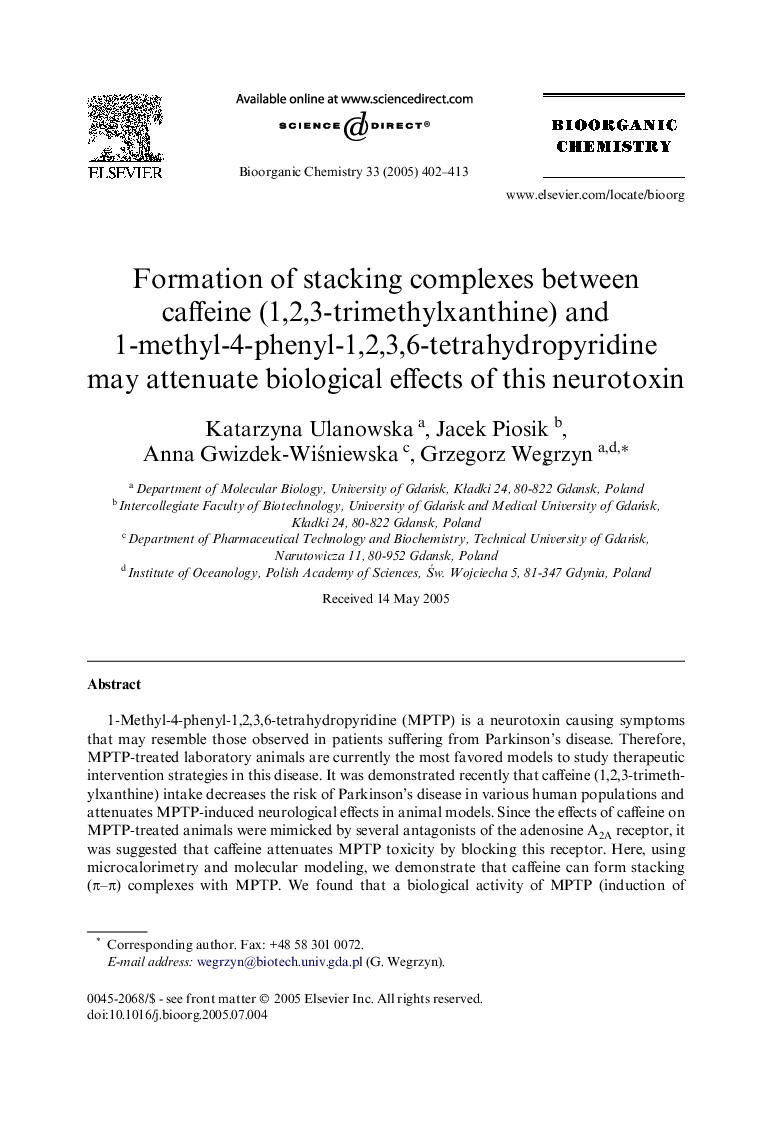| Article ID | Journal | Published Year | Pages | File Type |
|---|---|---|---|---|
| 10582707 | Bioorganic Chemistry | 2005 | 12 Pages |
Abstract
1-Methyl-4-phenyl-1,2,3,6-tetrahydropyridine (MPTP) is a neurotoxin causing symptoms that may resemble those observed in patients suffering from Parkinson's disease. Therefore, MPTP-treated laboratory animals are currently the most favored models to study therapeutic intervention strategies in this disease. It was demonstrated recently that caffeine (1,2,3-trimethylxanthine) intake decreases the risk of Parkinson's disease in various human populations and attenuates MPTP-induced neurological effects in animal models. Since the effects of caffeine on MPTP-treated animals were mimicked by several antagonists of the adenosine A2A receptor, it was suggested that caffeine attenuates MPTP toxicity by blocking this receptor. Here, using microcalorimetry and molecular modeling, we demonstrate that caffeine can form stacking (Ï-Ï) complexes with MPTP. We found that a biological activity of MPTP (induction of mutations in a microbiological mutagenicity assay), which is completely independent on the A2A receptor blockade, is significantly reduced by caffeine. Therefore, we suggest that caffeine may attenuate neurotoxicity of MPTP (and possibly other polycyclic aromatic toxins) and reveal its protective effects on the risk of Parkinson's disease not only by blocking the A2A receptor but also by sequestering neurotoxin molecules in mixed complexes, especially in stomach.
Related Topics
Physical Sciences and Engineering
Chemistry
Organic Chemistry
Authors
Katarzyna Ulanowska, Jacek Piosik, Anna Gwizdek-WiÅniewska, Grzegorz We¸grzyn,
